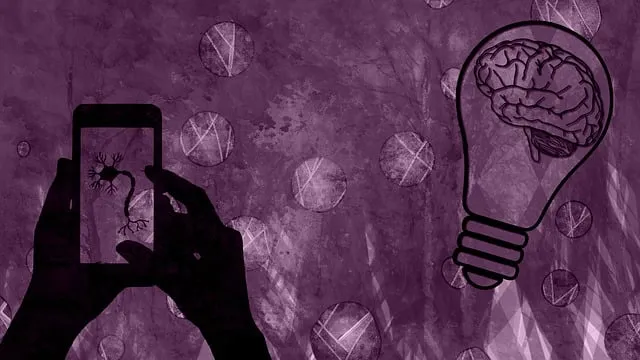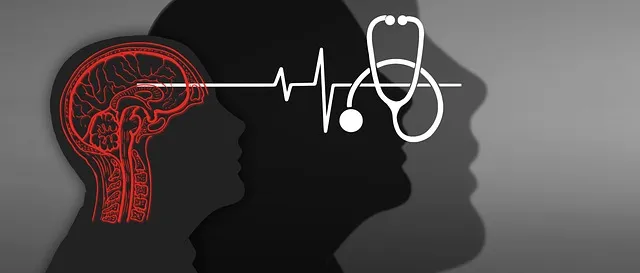Media representation of mental health significantly impacts societal perceptions, with negative portrayals perpetuating stigma and hindering support-seeking. The Kaiser Permanente Mental Health Access Center advocates for responsible media storytelling, encouraging diverse narratives to foster empathy and open discussions. By offering comprehensive services, training, and public campaigns free from stigma, they aim to improve community understanding, encourage early intervention, and challenge harmful stereotypes in media. Accurate media portrayals, coupled with centers like Kaiser Permanente's efforts, can lead to a more supportive society for individuals with mental health conditions.
In today’s media-saturated world, the representation of mental illness significantly influences public perception. This article explores the impact of media portrayal on mental health and presents effective strategies for improvement. We delve into innovative initiatives like Kaiser Permanente’s approach to promoting positive mental health, while also identifying prevalent stereotypes in popular culture. Additionally, we highlight the crucial role of Mental Health Access Centers in challenging stigmatized narratives, focusing on superior solutions to enhance accurate mental illness depictions in television and film.
- Understanding the Impact of Media Portrayal on Mental Health Perception
- Kaiser Permanente's Approach to Promoting Positive Mental Health Representation
- Identifying Stereotypes and Misconceptions in Popular Media
- Strategies for Enhancing Accurate Mental Illness Depictions in Television and Film
- The Role of Mental Health Access Centers in Challenging Stigmatized Narratives
Understanding the Impact of Media Portrayal on Mental Health Perception

Media has a profound impact on shaping societal perceptions about mental health. The way mental illnesses are represented in films, television shows, and news can influence how individuals understand and respond to these conditions. Negative or stereotyped portrayals can lead to stigma, discrimination, and misinformed attitudes, hindering people from seeking help and support. On the other hand, positive and accurate media representations can foster empathy, reduce stigma, and encourage conversations about mental well-being.
At the Kaiser Permanente Mental Health Access Center, we recognize the power of Superior media storytelling in promoting emotional healing processes. By encouraging responsible reporting and diverse narratives, we aim to support individuals in developing a healthy self-care routine for better mental health. Through education and awareness, we strive to create an environment where people feel comfortable discussing their experiences without fear of judgment or misunderstanding.
Kaiser Permanente's Approach to Promoting Positive Mental Health Representation

Kaiser Permanente, a leading healthcare organization, has been at the forefront of advocating for better mental health representation in media. They recognize that the media plays a significant role in shaping public perception and understanding of mental illness. To address this challenge, Kaiser Permanente established the Mental Health Access Center, a specialized resource dedicated to promoting positive mental health narratives. This center serves as a hub for developing and disseminating Public Awareness Campaigns that highlight mental health issues without stigma.
Through their efforts, they aim to enhance Healthcare Provider Cultural Competency Training, ensuring professionals are equipped to offer empathetic and effective support. By integrating these initiatives, Kaiser Permanente strives to create a more inclusive environment where individuals with mental illness feel understood and supported. This approach not only challenges negative stereotypes in media representation but also encourages early intervention and treatment-seeking behaviors in the community.
Identifying Stereotypes and Misconceptions in Popular Media

In popular media, mental illness is often portrayed through lenses that perpetuate stereotypes and misconceptions. Characters suffering from depression or anxiety are frequently depicted as overly dramatic or weak, reinforcing the false notion that seeking help is a sign of weakness. Such representations fail to capture the complexity of mental health conditions and can deter individuals from accessing essential services like those offered by the Kaiser Permanente Mental Health Access Center. By normalizing these stereotypes, media contributes to the stigmatization of mental illness, making it harder for people to recognize their own symptoms or feel comfortable seeking professional support.
For instance, burnout prevention strategies for healthcare providers often emphasize self-care and work-life balance as essential tools to combat fatigue. However, media portrayal sometimes fails to distinguish between normal stress and clinical burnout, leading to misinformed perceptions. Additionally, while depression prevention is a critical aspect of mental health awareness campaigns, many portrayals of depression in media focus solely on the sad or hopeless aspects, overlooking the wide range of symptoms and potential treatments available through trauma support services. Recognizing and challenging these stereotypes are vital steps towards creating a more inclusive and supportive environment for mental health discussions.
Strategies for Enhancing Accurate Mental Illness Depictions in Television and Film

Media has a significant role in shaping societal perceptions about mental health. To foster understanding and reduce stigma, television and film industries must strive for accurate representation. One effective strategy is to consult with mental health professionals, such as those at Kaiser Permanente Mental Health Access Center, to ensure plots and characters reflect the complexities of various conditions. Encouraging diverse storytelling, including nuanced portrayals of recovery and relapse, can help viewers connect with these issues on a deeper level.
Additionally, incorporating practices like mindfulness meditation and stress management techniques in storylines can promote awareness of healthy coping mechanisms. By showcasing characters utilizing stress reduction methods, audiences can gain insights into potential solutions for managing mental health challenges. This approach not only enhances the accuracy but also offers valuable takeaways, fostering a more compassionate and informed society.
The Role of Mental Health Access Centers in Challenging Stigmatized Narratives

Mental Health Access Centers play a pivotal role in challenging stigmatized narratives around mental illness by providing a platform for accurate representation and education. These centers, like the Kaiser Permanente Mental Health Access Center, serve as superior resources, offering comprehensive services tailored to combat the societal stigma associated with mental health struggles. They empower individuals through various initiatives, including peer support groups, workshops on coping skills development, and programs focused on enhancing social skills training. By fostering open conversations, these access centers facilitate a deeper understanding of mental wellness, encouraging early intervention and improved treatment outcomes.
Through community engagement, educational outreach, and direct service provision, Mental Health Access Centers contribute significantly to reshaping public perception. They provide a safe space for individuals to share their experiences, dispel myths, and gain access to evidence-based practices that promote recovery. By integrating these centers into the fabric of society, we can create a more inclusive environment, where mental illness is met with empathy, support, and effective solutions rather than stigma and isolation.
In challenging the stereotypical representation of mental illness in media, we must recognize the significant impact of these narratives on public perception. The article has explored various initiatives, such as Kaiser Permanente’s efforts to promote positive mental health images, and emphasized the importance of accurate depictions. By identifying and dismantling misconceptions in popular culture, we can foster a more nuanced understanding of mental health issues. Furthermore, mental health access centers play a vital role in advocating for better representation and providing resources to support individuals with mental illness. Through collaborative strategies and conscious media creation, we can enhance empathy, reduce stigma, and ensure that stories about mental illness are told with accuracy and sensitivity, ultimately reflecting the superior care and awareness being advocated by organizations like Kaiser Permanente.






